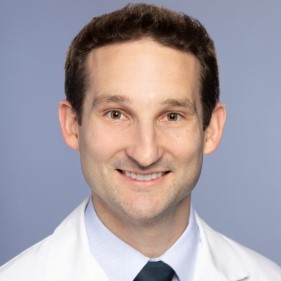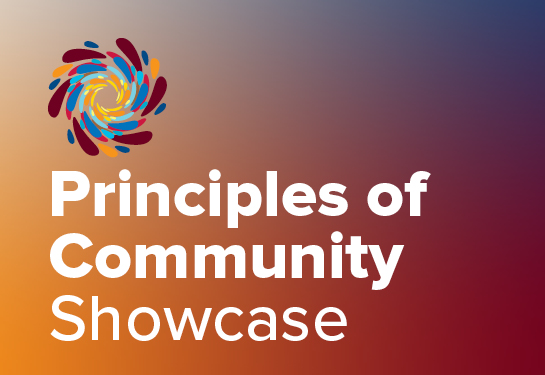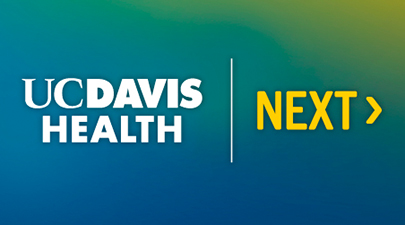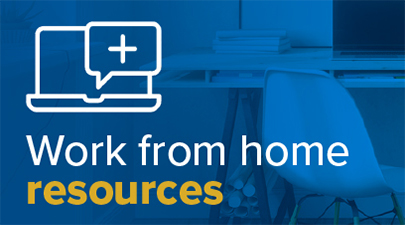A stroke, a pregnancy and a move: Senior pharmacist recalls hardest, most rewarding year yet
One survivor's community provided the relief that allowed him to focus on recovery, which would span a full seven months before he could return to work
It was Tuesday, January 4, 2022 when Ryan Beechinor and his wife Lili discovered they were pregnant with their third child. It was a surprise, but they were overjoyed.
On Thursday, January 6, after putting their two older children Lucia and Vincent to bed, Beechinor was brushing his teeth when he collapsed onto the bathroom floor.
Ten minutes elapsed, as he lay paralyzed and unable to speak. He tried to make sense of what was happening to him. It couldn’t be a stroke, he thought; he didn’t have a history of cardiovascular problems.
When Lili found him, she immediately thought he was joking. When he couldn’t move or respond, she called 911.
Luckily, the hospital was close to where the Beechinors live in Davis. And Ryan was the first patient at this hospital to receive the latest emergency stroke-treatment drug, Tenecteplase. As a clinical pharmacist for UC Davis Comprehensive Cancer Center, this coincidence impressed him.
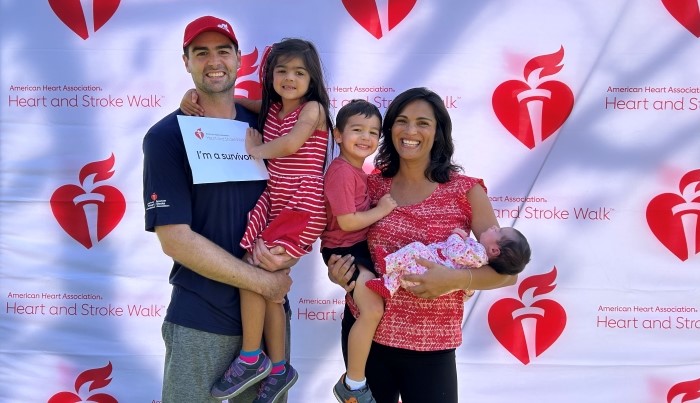
Once he was stable, Beechinor was transferred to another hospital where surgeons prepared to perform a thrombectomy, an emergency procedure to remove the blood clot in his brain. They began by evaluating his cerebral blood flow and discovered the good news that would shape Beechinor's recovery: the Tenecteplase had dissolved the clot already. He no longer needed the thrombectomy procedure.
Beechinor had suffered a rare form of stroke likely caused by a patent foramen ovale (PFO), a small hole between the upper chambers of the heart that typically closes after a person is born but did not in his case. Though PFOs affect about one-quarter of people worldwide and typically don’t cause medical issues, about 30-40% of patients with unexplained strokes have a PFO.
Besides the PFO, Beechinor had no other traditional risk factors—high blood pressure, smoking, diabetes—that would have put him at risk of stroke.
An unexpected community
A week later, following a series of nasal swabs and COVID tests, Beechinor’s hospital transfer request was approved and he arrived at UC Davis Medical Center’s Inpatient Neurology Service. There he met neurologist Kevin Keenan, who was already thrilled with his new patient’s progress.

He called the dramatic results from Tenecteplase “beautiful and miraculous.” For as big a clot as Beechinor’s, there was a less than 20% chance the drug would work so well. However, because it successfully dissolved the blood clot so soon after symptoms started, only the far downstream parts of his brain suffered a stroke. Without the Tenecteplase, the chances were high that a much larger stroke would have taken hold while Beechinor was being transferred for thrombectomy.
Eventually, Beechinor made it to acute rehabilitation, where he spent the next three and a half weeks completing intense physical, occupational and speech therapy.
Lili visited her husband every day he was in the hospital, while her parents cared for their children at home. Often, she arrived after breakfast and left Ryan around dinnertime, before making the 26-minute drive back to Davis.
During those drives, Lili felt the stabs of solitude. “I was so alone,” she said. But soon she began to see their growing baby as not only a presence but a source of fortitude. “Being pregnant required me to take care of myself. I made sure to eat. I made sure to drink water. I was taking care of the baby. She was with me and I was never alone.”
Beechinor’s older children were not allowed to see him due to pandemic restrictions, and he decided against FaceTime, because “I was not able to make any words.”
He made it his mission to work as hard as possible in rehab. He needed to get home to his family and, eventually, back to work. The Beechinors were a single-income household. Lili was a former kindergarten teacher who now cared for their children and home full-time. Apart from some PTO, they weren’t sure how long they could stretch their finances as Ryan recovered.
As soon as he learned about Beechinor’s stroke, a neighbor and retired UC Davis faculty member who asked to remain unnamed began gathering PTO donations through the university’s catastrophic leave program.
“What I did for Ryan and his family, I did from the bottom of my heart,” the neighbor said. “I have always been very supportive of the Catastrophic Leave Donation program. I think it is an excellent program.”

That gesture, plus the assistance from a GoFundMe his friends created helped relieve the greater part of the family’s financial stress. At home, a meal train covered six weeks’ worth of dinners for Ryan, Lili, Lucia and Vincent—including a delivery from Beechinor’s manager and Assistant Chief Pharmacist Andrea Iannucci, who said, “Your job will be waiting for you when you get back.”
Recalling that time period today, she said, “It’s important for our staff to feel supported when they are going in through a personal crisis. I never want them to be worrying about work when they need to focus on family and recovery.”
These kindnesses provided Beechinor the relief that allowed him to focus on his recovery, which would span a full seven months before he could return to work. The first six months after a stroke are the most critical to healing. After that, recovery results aren’t as dramatic.
“This community was there the whole time, we just didn’t need them [until now],” said Beechinor. Not only for the recovery that lay ahead, but in a matter of months his family would move to a new home and welcome a beautiful new baby girl, Elise.
“Maybe I’m not good at this anymore”
As his return date loomed, Beechinor was particularly concerned about performing a routine part of his job: going into patients’ rooms to educate them on their medications, a task that typically takes him 10-15 minutes. When he first practiced with his speech pathologist, it took Beechinor 45 minutes.
“Maybe I’m not good at this anymore,” he thought.
Ryan is such an impressive person. He has this ability to just keep on pushing forward, to press himself and overcome things.” —Kevin Keenan, M.D.
Between therapy sessions, he paid a couple of visits to his team at the Cancer Center. Part of him liked the idea of a return to normalcy; a big part felt anxious about going back. Would he be able to make it through a work day?
Then his colleague Nurse Practitioner Sara Winger came up and gave him a big hug. She said, “We’ll see you soon.” For Beechinor, that simple act meant everything.

By July, his speech practice was down to 25 minutes. He was ready to go back to work. The first day wasn’t easy—he tired more easily. But the end of the day arrived. He had done it. He could do this.
“Ryan is such an impressive person,” said Keenan. “He has this ability to just keep on pushing forward, to press himself and overcome things. That's fundamental to him.”
Today he’s back to 10-15 minutes.
Abundant gratitude
Beechinor admitted it used to be hard for him to verbalize thanks. He was raised to see gratitude as admitting you needed help in the first place—a form of dependency he called a “narcissistic injury.”
A near-death experience and a threat to his family’s financial stability flipped that long-held belief. As he watched GoFundMe donations pour in from his and Lili’s colleagues, former classmates and friends from across the country, their gratitude spilled over. The total topped $80,000 from 464 donors.
“The thought of having to thank everyone was at first a little overwhelming for me, because I didn't think I could string together the words to express how thankful Lili and I were for the donations,” he said. “But I would like to say now, with profound gratitude, to each and every person who contributed towards my recovery, I have the deepest appreciation.”
The outpouring of support from friends, family and community also allowed Lili to focus completely on her husband. “It was everything,” she said. The words “thank you” don’t seem big enough. “There needs to be a new word to express deep gratitude. But it doesn't exist yet.”
Nowadays Beechinor uses his experience to connect with patients and residents. He feels it was a benefit to have spent an extended period in the hospital, because “that’s what we expect our patients to go through too,” he said. “I feel that I have a new lease on life. It allowed me to take a step back and think about the things that are important to me.”
When it comes to Lili, he can’t say enough thanks—for the daily visits, the childcare, the cooking. He credits her with saving his life. Minutes before his stroke, he noticed they were out of milk and offered to run to the grocery store for more.
“It’s fine,” she said. “We can get it in the morning.”

